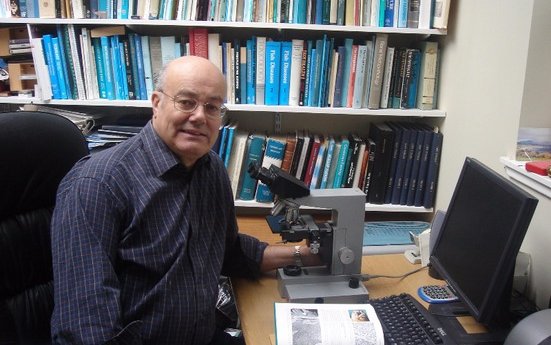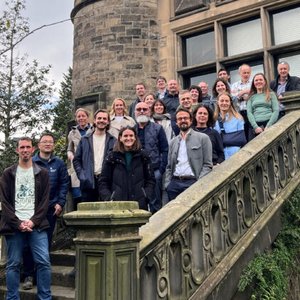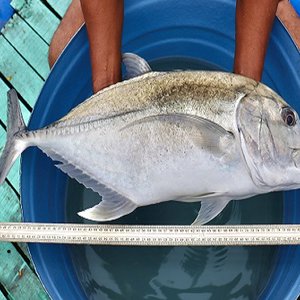A teacher, veterinary pathologist, author, editor and mentor to many young vets and fish health professionals, Ronald John Roberts was a talented veterinarian who drove veterinary science into aquaculture and vice versa, created the world-renowned Institute of Aquaculture, at the University of Stirling, and inspired countless vets into the aquatic world.
After a short time in veterinary practice, he secured a post in the Department of Veterinary Pathology at the University of Glasgow and also completed a PhD degree. His time as a junior pathologist coincided with a severe outbreak of skin disease in wild salmon, now known as ulcerative dermal necrosis (UDN). Ron was given responsibility for reporting the large numbers of cases that were submitted to the department for investigation and definitive diagnosis. As a result of this work, he became inundated with post-mortem material from the embryonic trout, salmon and turbot farming industries which were developing at that time in Scotland. He began the studies of inflammation, wound healing, cellular immunity and melanomacrophage function which have become a cornerstone of modern fish pathology.
In 1971, his work, and the rapidly growing aquaculture scene, led the Nuffield Foundation to fund a Research Unit at the University of Stirling: the Aquatic Pathobiology Unit. With this funding was established the world’s first Master’s degree course in Aquatic Veterinary Studies, which continues to this day.
In 1978, Nuffield funding ended and the unit was converted to a self-supporting university institute, the Institute of Aquaculture. In the same year, the first edition of his seminal text Fish Pathology was published, which is now in its fourth edition. Also in the same year, the Journal of Fish Diseases, the first scientific journal in English devoted entirely to fish and shellfish diseases, was launched under Ron’s editorship, and to top off that year, he was elected a fellow of the Royal Society of Edinburgh at the early age of 37.
Much of the work of the Institute of Aquaculture at this time was funded by the UK Overseas Development Administration, as well as from the FAO and The World Bank, and it was on one such project that he was dragooned into leading a large UN Mission, extending over five years, to investigate a serious condition afflicting rice field fish in Asia, which was alleged to be caused by the use of the fertilizers and pesticides. The matter was of great concern to national governments and major chemical companies, with an urgent need to identify the cause of the condition and advise as to how it might be managed. Roberts established an international team working out of Bangkok which collected disease material in the field from an area stretching from Australia and Papua New Guinea to Pakistan. The final conclusion was that the single necessary primary pathogen was a recent mutant Aphanomyces fungus, which was named Aphanomyces invadans. The disease, Epizootic Ulcerative Syndrome (EUS) remains a notifiable disease to the World Organisation of Animal Health (WOAH) and the success of this project led to Ron being appointed Commander of the Most Noble Order of the Crown by His Majesty King Bhumibol of Thailand.
In 1996, Ron Roberts retired as institute director but continued his work in other ways. His two major commitments were to the University of Idaho, where he was invited to take up a Distinguished Visiting Professorship, and as a Director of Landcatch, a commercial salmon farming company in Scotland. He was awarded the Dalrymple Champneys Cup and Medal by the British Veterinary Association (1990) and the Buckland Medal of the Buckland Foundation (1985) as well as the Fellowship of the Royal College of Veterinary Surgeons and was a founding member of the European College of Aquatic Animal Health (ECAAH).
Despite later health challenges, Ron was active in Campbeltown where Helen and himself continued to rear their sheep and he published the book A Sense of Place: Kintyre’s Remarkable Diaspora in 2023, with biographies of people from Argyll who have made international impacts.
Ron Roberts’s energy, enthusiasm, world vision, ambition, drive and intelligence created a global legacy of vets, researchers, fish health professionals and aquaculturists who were inspired and guided into the aquatic world. He was a trailblazer in the application of veterinary science to aquatic animal health and had a major impact on the science and art in the sphere, as well as the many lives globally.













